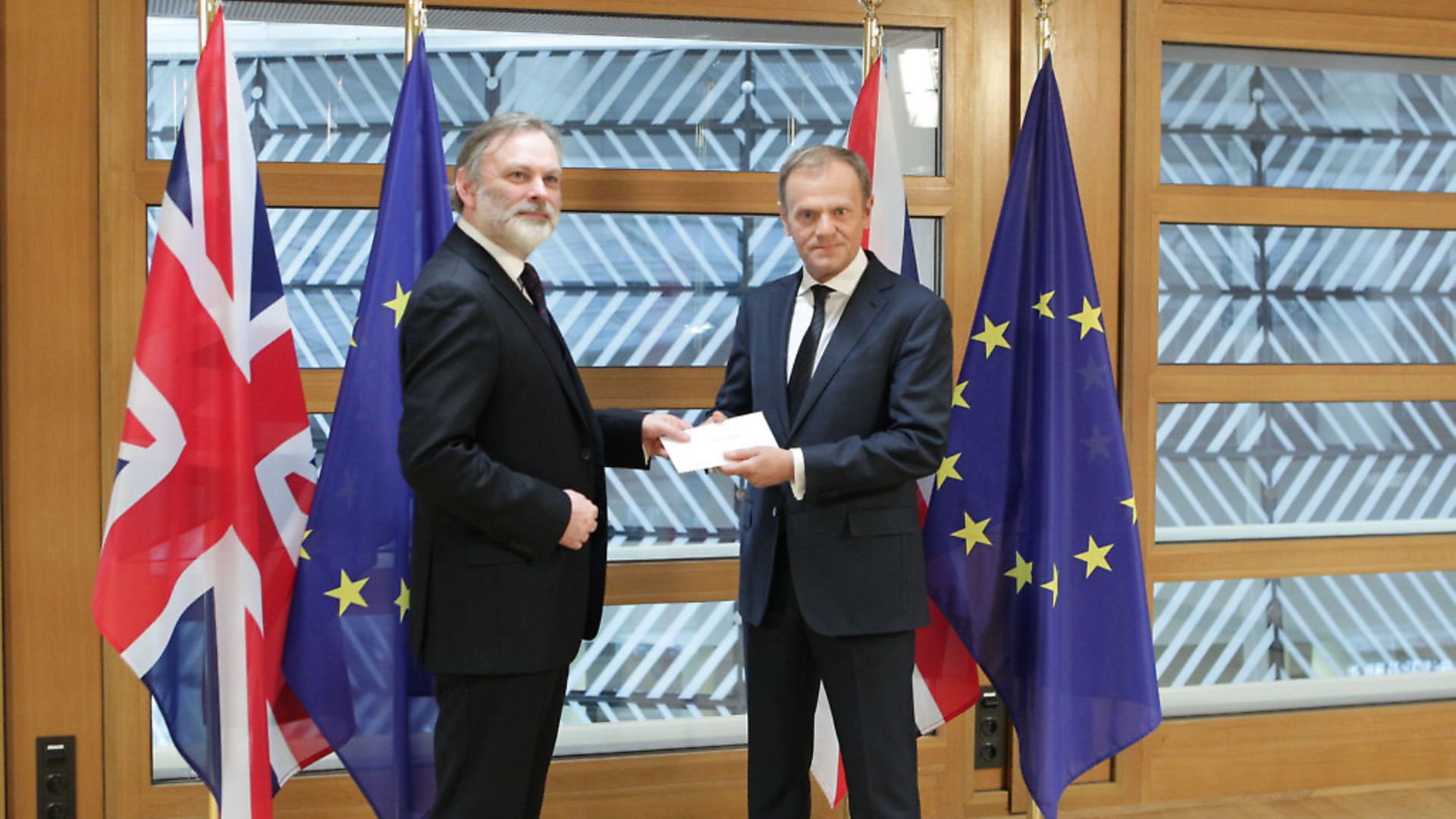
There are still many questions to think about when it comes to another EU referendum. Former Conservative party adviser BARNABY TOWNS argues that anti-Brexit campaigners should be pushing to stop the Article 50 clock first.
When the history of the Brexit crisis is written, the decision to trigger the Lisbon Treaty’s Article 50, setting the clock ticking on the UK’s departure from the EU—with no plan, preparation or consensus on the way forward—may rank as one of the greatest mis-steps. Issued to impress Leave voters before last year’s general election misfire, and to underscore government red lines long since faded in the face of reality, its artificial time-limit increasingly threatens a chaotic and catastrophic no-deal exit. In terms of the self-inflicted loss of British power and influence it entails, Tory ex-deputy prime minister Michael Heseltine calls it ‘the worst decision we have made since the war.’
As the country careens toward crashing out of the EU with no withdrawal agreement, no transition period, no trade deal and no settlement of legal and financial responsibilities, the European Court of Justice confirmed that the UK can unilaterally revoke the notice. This ruling arose from a case brought by a cross-party group of members of the Scottish Parliament. Britain’s Supreme Court rejected a UK government bid to stop Europe’s top court from considering the issue, as it similarly turned down government arguments that issuing Article 50 did not require parliamentary approval.
Of course, when Parliament held the Article 50 vote, both government and opposition imposed three-line whips—the strictest of parliamentary instructions to vote the party line. Nonetheless, 47 Labour MPs were joined by former Tory chancellor Ken Clarke, the sole Tory rebel, the Green MP Caroline Lucas, seven Liberal Democrats and the SNP in voting against. But seeing as the government’s failure to agree a negotiating position and to get the UK-EU withdrawal agreement through Parliament cost precious time, more MPs now want to stop the clock to avert disaster.
In this, MPs are joined by former Tory prime minister John Major, who warns that Article 50 must be revoked ‘with immediate effect’ because ‘we need the most precious commodity of all: time.’ Major’s Labour successor, Tony Blair, concurs, bluntly stating that ‘Britain will require an extension of time to the Article 50 process,’ earning him, but not Major, a rebuke from Theresa May.
If the government delays offering Parliament a vote on the withdrawal agreement into January, there will be fewer than 90 days until the currently scheduled exit date. Even if, against all expectation and odds, sufficient numbers of opposition MPs and Tory hardliners enable it to pass, there still isn’t time for legislation to go through all parliamentary stages before March 29th.
Once defeated, the government might consider a series of indicative—non-binding—parliamentary votes on various alternatives. These would likely include: the so-called ‘Norway plus’ destination of remaining in the EU’s internal market and customs union, but outside the EU; another referendum; and leaving with no deal. This might at least indicate MPs’ most favoured option.
Supporters of a People’s Vote might take heart from the over 30 Labour MPs and nine Tories who publicly back the idea, alongside Liberal Democrats, SNP, Plaid Cymru and Green party support, and the fact that many more do so privately and may opt for this outcome as other options are eliminated. But they also should note that Parliament cannot compel the government to support this, which will require legislation and therefore a majority to pass the necessary stages in both houses. Realistically, Labour front bench support would also be needed for Labour MPs to back a vote through all those stages.
The latest YouGov polling, which unlike in 2016 can be weighted against the recent previous vote, are encouraging for pro-Europeans. Remain vs. May’s Deal breaks 62:38% in Remain’s favour; Remain beats No Deal 57:43%; while a more complex three-way question produces Remain: 54%; No Deal: 28%; May’s Deal: 18%. But placing no deal on a ballot paper risks creating a mandate no conceivable government at Westminster would want.
Will 16 and 17-year olds, allowed to vote in the Scottish referendum, get a say on their future? Should the three million Brits resident overseas for more than 15 years, and denied a vote in 2016, be enfranchised? Might we repeat 2016 with Irish and qualifying Commonwealth citizens voting, but not the more than two million free-movement workers who pay taxes — £2,300 more annually than the average Brit — and vote in local elections?
Remainers need to think carefully about how another referendum — the third on Europe and thirteenth in our history — might work, but absent approval of the withdrawal deal, the clock must be stopped.
• Barnaby Towns is a former Conservative party adviser









